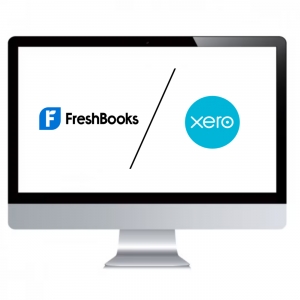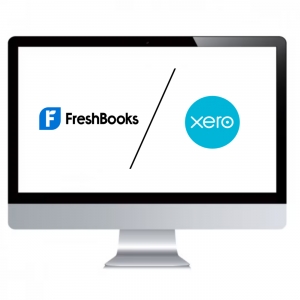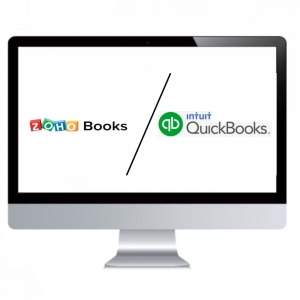When it comes to accounting software solutions, the age-old debate of NetSuite vs QuickBooks still rages on. Both platforms have their own set of strengths and weaknesses that can make or break a business's financial operations. On one hand, NetSuite boasts a comprehensive suite of enterprise-level features that can handle everything from finances to customer relationship management.
However, this level of functionality often comes with a steep learning curve and higher price tag than the simpler but effective QuickBooks platform. With its user-friendly interface and affordable pricing options, QuickBooks is ideal for small businesses looking for basic bookkeeping ability. But as companies grow in size and complexity, they may find themselves outgrowing QuickBooks' limited feature set and needing to migrate over to NetSuite for more robust functionality. Ultimately, the decision between NetSuite vs QuickBooks comes down to evaluating your specific business needs and budget constraints before committing to either option.
In this blog post, we'll compare the NetSuite vs QuickBooks side by side to help you make an informed decision. We'll break down their pricing structures, highlight key differences, and provide pros and cons for each option. By the end of this article, you'll have a better understanding of which software solution aligns with your business needs!
History of NetSuite and QuickBooks
NetSuite was founded in 1998 by Evan Goldberg, who initially designed it to be an accounting and enterprise resource planning (ERP) tool. The company has since expanded its ability to include e-commerce, inventory management, customer relationship management (CRM), and more. Netsuite's cloud-based system allows businesses to access their data from anywhere with an internet connection.
QuickBooks, on the other hand, was developed by Scott Cook and Tom Proulx for Intuit in 1983. Originally designed as a simple accounting software for small businesses, QuickBooks has grown into a full-service financial management platform that can handle everything from payroll processing to invoicing. With over seven million users worldwide, QuickBooks is one of the most popular accounting solutions on the market.
NetSuite and QuickBooks both systems have come a long way since their inception and continue to evolve with new features and updates. Today, they offer comprehensive business solutions tailored to meet the needs of companies at every stage of growth!
Key Differences between NetSuite vs QuickBooks
NetSuite and QuickBooks are two of the most popular business software solutions on the market today. While NetSuite vs QuickBooks both offer a wide range of features designed to help businesses manage their finances, they differ in several key ways.
One major difference between NetSuite and QuickBooks is that NetSuite is designed for larger businesses with more complex financial needs, while QuickBooks is geared towards smaller businesses. As such, NetSuite offers more robust accounting tools, advanced reporting ability, and greater scalability than QuickBooks.
Another key difference between these two software solutions lies in their user interface. NetSuite has a more modern look and feel than QuickBooks, which some users may find easier to navigate. However, this comes at the cost of greater complexity - many users report that it takes longer to learn how to use NetSuite effectively than it does with QuickBooks.
Pricing varies significantly between these two options. While NetSuite vs QuickBooks both have multiple tiers available depending on your business's size and needs, overall NetSuite tends to be more expensive than QuickBooks.
Ultimately which solution you choose will depend on your specific business needs. It’s important to evaluate each option carefully before making a decision as switching from one platform to another can be time-consuming and costly.
NetSuite vs QuickBooks Pricing
One of the most important factors to consider when choosing between Netsuite and QuickBooks is pricing. QuickBooks offers a range of different pricing plans, starting at $20 per month for their simple start plan, which includes invoicing, expense tracking, and 1099s. The plus plan costs $70 per month and adds inventory management and project profitability tracking.
NetSuite’s pricing model is more complex as it offers a suite of products that cater to different business sizes and needs. Their basic package starts at $999 per year while their advanced packages can cost tens of thousands of dollars annually.
Although QuickBooks may appear cheaper than NetSuite on the surface, it's important to remember that this depends on your business size and needs. If you have a large enterprise with complex accounting requirements, NetSuite might be the better investment in the long run since you won't need to upgrade or switch software as your business grows.
Ultimately, it's crucial to assess both platforms' features against your particular business needs before making any commitment based solely on price alone.
NetSuite vs QuickBooks Pros and Cons
When deciding between NetSuite vs QuickBooks, it's important to consider the pros and cons of each software.
NetSuite offers a complete suite of tools for businesses that need extensive financial management capabilities. With its all-in-one platform, users can streamline their operations by managing finances, inventory, CRM, e-commerce, and more from a single dashboard. Additionally, NetSuite has robust reporting features that allow users to create custom reports for specific business needs.
On the other hand, QuickBooks is an excellent choice for small businesses with less complex accounting needs. It's user-friendly interface makes it easy to use even if you have no prior accounting experience. Plus, QuickBooks offers integrations with many third-party applications such as PayPal for efficient payment processing.
One downside of NetSuite is that its pricing can be expensive compared to QuickBooks which has various pricing tiers based on your business size and needs. Moreover, although QuickBooks provides a lot of value at an affordable price point compared to other ERP systems in the market it may lack some advanced functionalities found in NetSuite like project management or time tracking capabilities.
Both platforms offer unique advantages depending on your business requirements so carefully evaluate what fits best before making any decision
Which Software is Right for Your Business?
When it comes to deciding which software is right for your business, there are several factors that you should consider. Firstly, think about the size of your business and how many users will need access to the system. NetSuite is better suited for larger businesses with complex needs, while QuickBooks may be more appropriate for small to medium-sized enterprises.
Another factor to consider is the level of customization required. NetSuite offers a high degree of flexibility and can be tailored to meet specific industry requirements, whereas QuickBooks has a more standardized approach.
Your budget also plays an important role in determining which software solution is best for you. While NetSuite can be more expensive, it offers comprehensive functionality that could save money on additional tools or systems down the line. QuickBooks provides cost-effective solutions and flexible pricing options based on user numbers.
Consider what features are most essential for your business operations such as inventory management or project tracking. Both platforms offer unique advantages in these areas but depending on your specific needs one may suit better than others.
Ultimately selecting between NetSuite vs QuickBooks depends upon various factors including budget considerations and feature requirements that will vary from company-to-company.
Conclusion
After analyzing and comparing NetSuite vs QuickBooks, it's evident that both software solutions have their advantages and limitations. If you're looking for a robust, all-in-one system with features like CRM, inventory management, project management, and accounting capabilities, then NetSuite is the ideal choice for your business.
On the other hand, if you want an affordable solution to manage basic bookkeeping tasks such as invoicing or tracking expenses or maintaining payroll records quickly on-the-go without requiring extensive training in bookkeeping principles then QuickBooks would be more suitable.
Ultimately, choosing between these two software solutions requires careful consideration of your business needs and budget. Before making any decision about which one to choose always perform due diligence by talking to experts who can explain how each platform works best based on what kind of company or industry sector you operate In this way, you will be able to make an informed decision that leads to success for your business.





